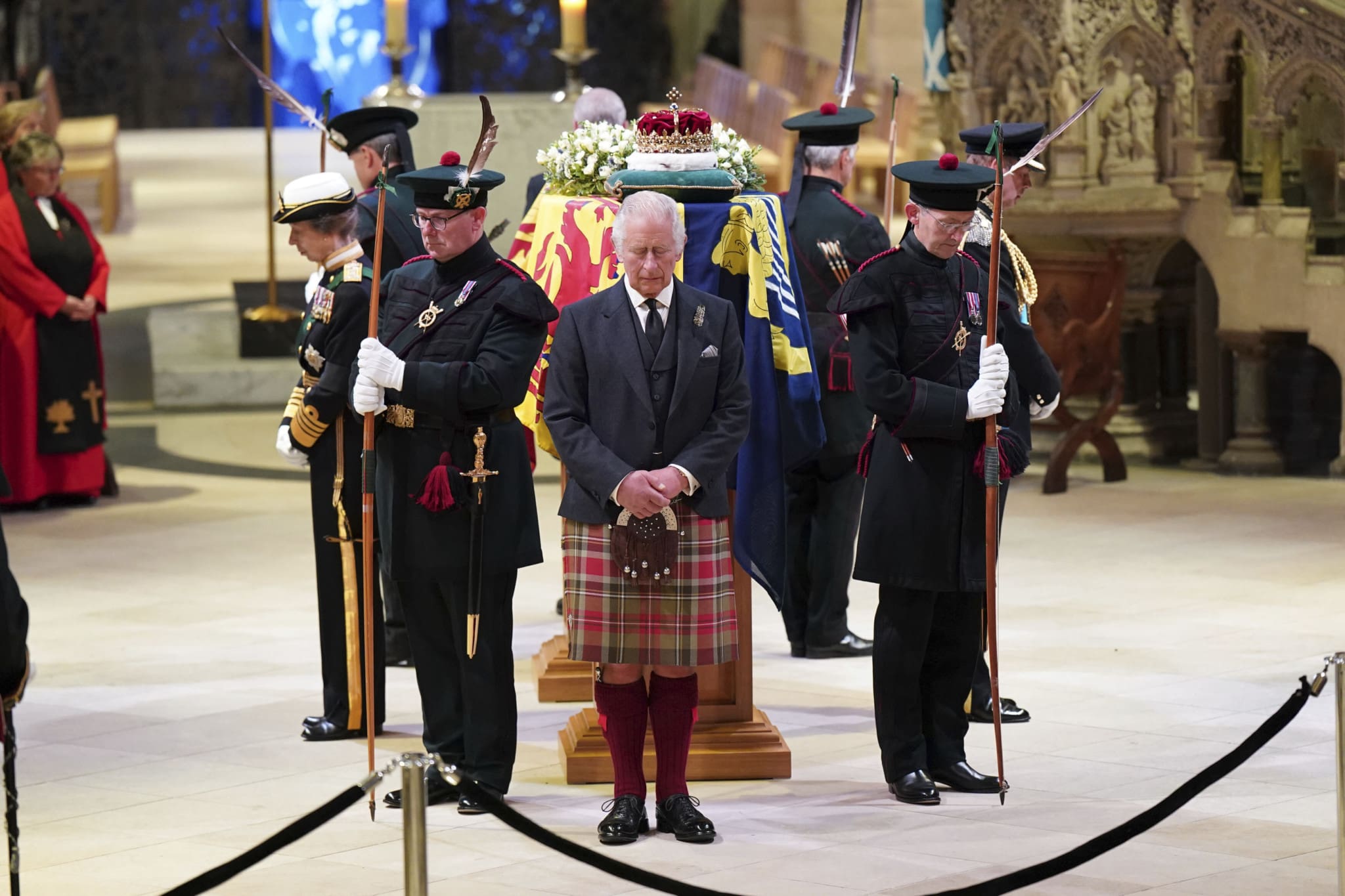As thousands queue throughout the night to catch a glimpse of Queen Elizabeth II’s coffin as Her Majesty lies in state at St Giles’ Cathedral in Edinburgh, and floral tributes continue to pour in from across the country, some have chosen the passing of the late Queen as an optimal time to protest Britain’s long-established hereditary monarchy.
A number of incidents over the past few days in which protesters have been arrested by authorities has sparked a debate over the extent to which one’s right to free speech in the country still exists.
A case in point involved an incident on Monday during which a 22-year-old man was arrested for allegedly breaching the peace, after he took the opportunity to call the Queen’s second-born son, Prince Andrew, a “sick, old man” as the royal procession moved along Edinburgh’s Royal Mile.
The man was manhandled by members of the public who at first attempted to drown out the protest with renditions of “God Save The King;” however, authorities eventually stepped in and removed the protester from the crowd. He was later arrested, despite maintaining he had “done nothing wrong.”
Similarly in Oxford, a 45-year-old man was arrested on suspicion of a public order offense after shouting “Who elected him?” in reference to King Charles III’s automatic accession to the throne. He was later de-arrested and is reportedly voluntarily assisting the police with their inquiries.
And outside the Houses of Parliament in London, a protester holding a sign reading “Not my King” was moved on by police ahead of the King’s arrival at Westminster Hall.
Also in Parliament Square, a barrister equipped with a blank sign was reportedly warned that he would be arrested under public order legislation if he wrote “Not my King” on it, because it “may offend someone.”
Free-speech campaigners have criticized the police response towards anti-monarchy activists, insisting that while many have the right to call such protests inappropriate or disrespectful, the right to protest is a fundamental cornerstone of democracy and must be protected.
The Free Speech Union called arrests for legitimate protest “wrong,” insisting: “Republicans have the right to peacefully dissent. The police are under pressure, but they need to strike the right balance and ensure freedom of expression is upheld.”
The union urged any anti-monarchy protesters who had been arrested and charged for protesting against the monarchy to contact a member of its case team. “The right to protest is a fundamental human right, and the police and courts ignore it at their peril,” they added.
Silkie Carlo, director of Big Brother Watch, said police officers had a “duty to protect people’s right to protest as much as they have a duty to facilitate people’s right to express support, sorrow, or pay their respects.”
Journalist and broadcaster Andrew Marr on LBC radio on Monday evening called the arrests “frankly pathetic.”
“A monarchy which can’t survive some booing and a few pieces of cardboard is pretty flimsy, isn’t it? This kind of idiotic heavy-handed policing is actually, longer-term, dangerous for the monarchy,” he added.
Ahead of the royal procession’s trip down to London in the coming days, the Metropolitan Police has reiterated the validity of legitimate protest. In a statement from Deputy Assistant Commissioner Stuart Cundy, the police force maintains “the public absolutely have a right to protest and we have been making this clear to all officers involved in the extraordinary policing operation currently in place.”
The spokesman for the new U.K. Prime Minister Liz Truss acknowledged the period of national mourning, but insisted the “fundamental right to protest remains a keystone of our democracy.”






